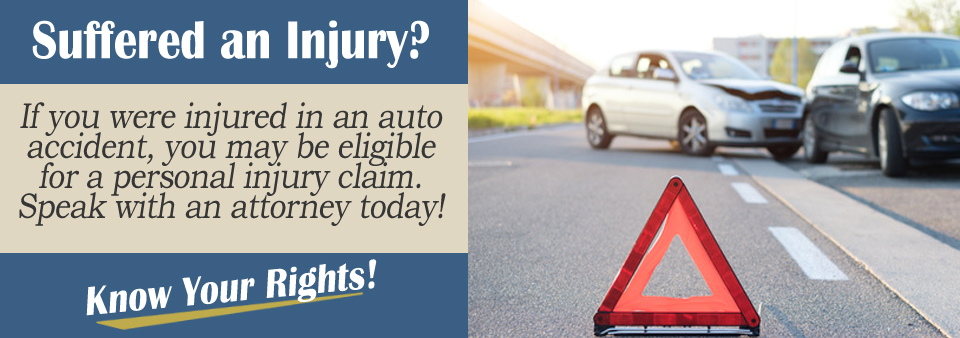If you are driving behind a car and they stop suddenly and you hit them, the driver who stopped suddenly may likely be found at-fault for the accident. That is because has a duty to indicate their intention to stop or turn giving other drivers enough time to react.
If a Car Stops Abruptly and You Hit It is It Your Fault?
While the driver who stopped suddenly could be considered at fault, the answer is you most likely must assume blame for causing a rear-end accident. Even if another driver abruptly stopped, the safe distance you should have traveled behind the other vehicle would have provided you with more than enough time to stop your vehicle before hitting the other car.
State traffic laws typically place the blame on the driver who made an impact because the driver did not leave enough distance to stop the car at the rate of speed that the car traveled.
Abrupt stops can be necessary for several reasons, which makes it difficult to blame the driver who suddenly stopped a vehicle. For example, a driver might make an abrupt stop to avoid hitting an animal or pedestrian. An unexpected road hazard, such as a fallen tree branch, also can force a driver to make a sudden stop.
In some instances, the driver who made the abrupt stop might share the legal responsibility for causing a rear-end car accident.
Examples of when a driver who stopped suddenly may be at fault include:
- When a driver fails to signal before making a turn.
- When a driver's brake lights are not working, making it unknown that the driver was braking.
- When a driver suddenly brakes without cause while you were traveling a safe distance behind the front vehicle.
For more information on who is at fault, visit Who is at Fault in a Rear-End Auto Accident?
Who Shares Liability When You Rear-End Someone?
The liability in these situations often falls on how your state addresses accidents where more than one driver would be to blame for what happened. The different types of negligence, known as contributory negligence and comparative negligence can help determine who is liable for the accident.
Contributory Negligence
If you are in a state that uses comparative negligence for auto accidents, the driver of one vehicle cannot recover damages from the other driver if he was determined to be at any percentage of fault for the crash. For example, if the driver of the car in front was 5% at fault, and the driver of the back car was 95% to blame, the driver of the front car could not recover any damages because his or her actions contributed to the crash.
Only 4 states follow contributory negligence:
- Alabama
- Maryland
- North Carolina
- Virginia
Washington D.C. also follows contributory negligence.
Comparative Negligence
Depending where the accident took place where the car in front of you stopped suddenly, will determinate whether comparative negligence is determined. States that use comparative negligence allocates fault for the accident. There are two kinds of comparative negligence that might be used. If the state uses pure comparative negligence, liability is split according to each driver’s percentage of fault.
The states that use pure comparative negligence include:
- Alaska
- Arizona
- California
- Florida
- Kentucky
- Louisiana
- Mississippi
- New Mexico
- New York
- Rhode Island
- Washington
If modified comparative negligence is used, damages are split according to fault up to a specific pre-set level. Usually, that cut-off limit is 50%. So, if both drivers are 50% at fault, they can recover damages from one another. However, if a driver is 51% at fault, he or she cannot recover damages from the other driver.
The states that use modified comparative negligence include:
- Arkansas
- Colorado
- Connecticut
- Delaware
- Georgia
- Hawaii
- Idaho
- Illinois
- Indiana
- Iowa
- Kansas
- Maine
- Massachusetts
- Michigan
- Minnesota
- Missouri
- Montana
- Nebraska
- Nevada
- New Hampshire
- New Jersey
- North Dakota
- Ohio
- Oklahoma
- Oregon
- Pennsylvania
- South Carolina
- South Dakota
- Tennessee
- Texas
- Utah
- Vermont
- West Virginia
- Wisconsin
- Wyoming
For more information on if you can file a claim, visit I Rear-Ended a Car That Didn't Use Hazards. Can I File a Claim?

Connect With a Personal Injury Lawyer
If you have been involved in a rear-end collision where the car in front of you stopped suddenly, you should consult with a personal injury lawyer. These kinds of accident injury claims can be complicated, so you need a lawyer aggressively pursuing your claim.
Complete the Free Case Evaluation Form on this page to have your details shared with an attorney in your area. Personal injury lawyers work on a contingency basis, so you have nothing to lose.
